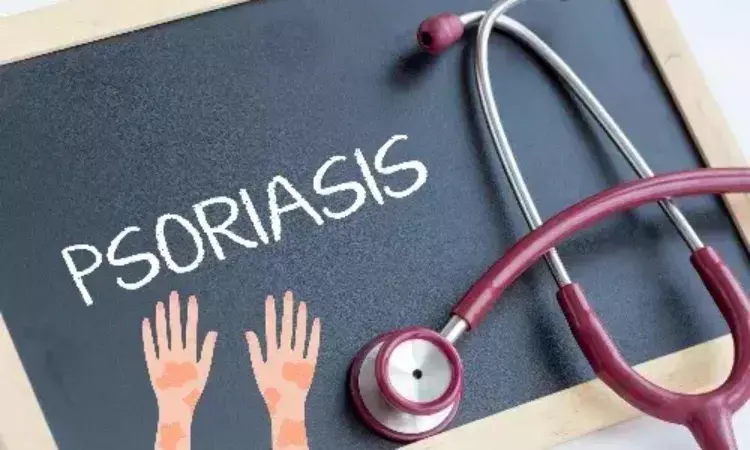- Home
- Medical news & Guidelines
- Anesthesiology
- Cardiology and CTVS
- Critical Care
- Dentistry
- Dermatology
- Diabetes and Endocrinology
- ENT
- Gastroenterology
- Medicine
- Nephrology
- Neurology
- Obstretics-Gynaecology
- Oncology
- Ophthalmology
- Orthopaedics
- Pediatrics-Neonatology
- Psychiatry
- Pulmonology
- Radiology
- Surgery
- Urology
- Laboratory Medicine
- Diet
- Nursing
- Paramedical
- Physiotherapy
- Health news
- Fact Check
- Bone Health Fact Check
- Brain Health Fact Check
- Cancer Related Fact Check
- Child Care Fact Check
- Dental and oral health fact check
- Diabetes and metabolic health fact check
- Diet and Nutrition Fact Check
- Eye and ENT Care Fact Check
- Fitness fact check
- Gut health fact check
- Heart health fact check
- Kidney health fact check
- Medical education fact check
- Men's health fact check
- Respiratory fact check
- Skin and hair care fact check
- Vaccine and Immunization fact check
- Women's health fact check
- AYUSH
- State News
- Andaman and Nicobar Islands
- Andhra Pradesh
- Arunachal Pradesh
- Assam
- Bihar
- Chandigarh
- Chattisgarh
- Dadra and Nagar Haveli
- Daman and Diu
- Delhi
- Goa
- Gujarat
- Haryana
- Himachal Pradesh
- Jammu & Kashmir
- Jharkhand
- Karnataka
- Kerala
- Ladakh
- Lakshadweep
- Madhya Pradesh
- Maharashtra
- Manipur
- Meghalaya
- Mizoram
- Nagaland
- Odisha
- Puducherry
- Punjab
- Rajasthan
- Sikkim
- Tamil Nadu
- Telangana
- Tripura
- Uttar Pradesh
- Uttrakhand
- West Bengal
- Medical Education
- Industry
Genetic Study of Psoriasis Unveils Strong Association with Socio-Economic Status and Affective Symptoms

Finland: A groundbreaking genetic study exploring the complexities of psoriasis has revealed a compelling link between this chronic skin condition, socio-economic status, and affective symptoms. The findings, published in the renowned Journal of Investigative Dermatology, offer valuable insights into the multifaceted nature of psoriasis and its broader impact on the well-being of individuals.
The researchers identified six new psoriasis risk loci with genetic correlations, providing evidence for links between psoriasis and factors such as mood symptoms, obesity, smoking, and a lower education level.
Psoriasis, a common autoimmune disorder characterized by red, scaly patches on the skin, affects millions of people worldwide. While its genetic basis has long been recognized, the interplay between genetic predisposition, socio-economic factors, and psychological symptoms has remained less understood.
Previous genome-wide association studies (GWASs) have detected several risk loci for psoriasis. To further improve the understanding of the genetic risk factors impacting the disease, Anni Heikkilä, University of Oulu, Oulu, Finland, and colleagues conducted a discovery of GWAS in FinnGen and a subsequent replication and meta-analysis with data from the Estonian Biobank and the UK Biobank.
The study sample included 925 649 individuals (22 659 cases and 902 990 controls), the largest sample for psoriasis yet. In addition, the research team conducted downstream analyses to determine more about psoriasis’ cross-trait genetic correlations and causal relationships.
The researchers reported the following findings:
- The team reported six risk loci to their knowledge previously unreported, most of which harbor genes related to nuclear factor kappa-light-chain-enhancer of activated B-cells-signaling pathway and overall immunity.
- Genetic correlations highlight the relationship between psoriasis and smoking, higher body weight, and lower education levels.
- The researchers also reported causal relationships between psoriasis and mood symptoms, and the two-directional causal relationship between psoriasis and lower education levels.
To conclude, the researchers found six psoriasis risk loci to our knowledge previously unreported, and, overall, the present genome-wide analyses stressed the role of immune-regulating genes in psoriasis pathogenesis. The results of the genetic correlations provided genetic evidence for the close link between psoriasis and socio-economic status.
"With Mendelian randomization, we found evidence of causal relationships between obesity and psoriasis, complex causal relationships between psoriasis and low education level, and psoriasis and mood symptoms. Our findings deepen the understanding of psoriasis and may be useful in treatment development," the researchers wrote.
By unraveling these complex interactions, researchers pave the way for more personalized and holistic approaches to psoriasis care that address the diverse needs of affected individuals.
Reference:
Heikkilä A, Sliz E, Huilaja L; FinnGen; Estonian Biobank Research Team; Reis K, Palta P, Elnahas AG, Reigo A, Esko T, Laisk T, Teder-Laving M, Tasanen K, Kettunen J. GENETIC STUDY OF PSORIASIS HIGHLIGHTS ITS CLOSE LINK WITH SOCIO-ECONOMIC STATUS AND AFFECTIVE SYMPTOMS. J Invest Dermatol. 2024 May 17:S0022-202X(24)00358-0. doi: 10.1016/j.jid.2024.03.043. Epub ahead of print. PMID: 38763176.
Dr Kamal Kant Kohli-MBBS, DTCD- a chest specialist with more than 30 years of practice and a flair for writing clinical articles, Dr Kamal Kant Kohli joined Medical Dialogues as a Chief Editor of Medical News. Besides writing articles, as an editor, he proofreads and verifies all the medical content published on Medical Dialogues including those coming from journals, studies,medical conferences,guidelines etc. Email: drkohli@medicaldialogues.in. Contact no. 011-43720751


